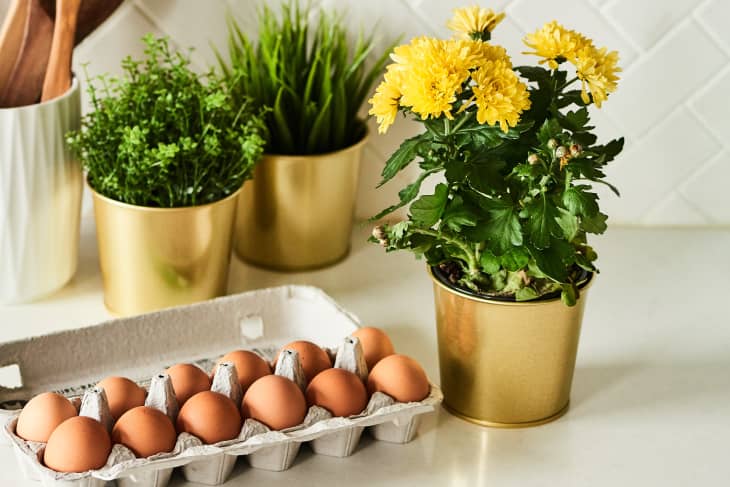You Should Save Your Hard-Boiled Egg Water—for Your Plants!

Whether you’re dyeing eggs for Easter, or you’re just really into packing hard-boiled eggs with your lunch lately, here’s a smart tip you can use soon: Save your egg water for your plants.
The Tip:
Plants love calcium. When it’s present in a plant’s soil, calcium helps to keep the pH in check—a neutral soil pH between 6.0 and 6.5 provides plants with the ideal environment to soak up all the nutrients they need. You know what naturally contains calcium? Eggshells. And leaving eggshells boiling in hot water for a while is a great way to steep out the calcium into the water.
Basically: After you boil a bunch of eggs in their shells, the water left over is more calcium-rich than ever, and not a bad option to repurpose for watering your houseplants. You want to make sure that you let the water return to room temperature before you add it to your plants’ soil.
Cooking Lessons from Kitchn: How To Hard-Boil an Egg
What You Should Know:
There’s a catch, of course. And the catch here is: Your houseplants are probably already OK. Potting soils have a pH that is already pretty close to neutral, so if your plants have been potted or re-potted in the last several years, chances are the pH is fine for your plant’s health.
Some fertilizers can create acidic reactions in soil—but it would take a lot, and a really long time to move the needle a considerable amount. If you’re concerned about the pH of your soil, you can get a pH tester for around $9. If you find out that the soil is too acidic, by all means—get some eggs boilin’, or try ground limestone instead.
So, no, egg water isn’t going to suddenly bring your brittle-leafed fiddle-leaf back from the brink of death. But if you were just going to throw that egg water down the drain, why not repurpose it to water your plants instead?